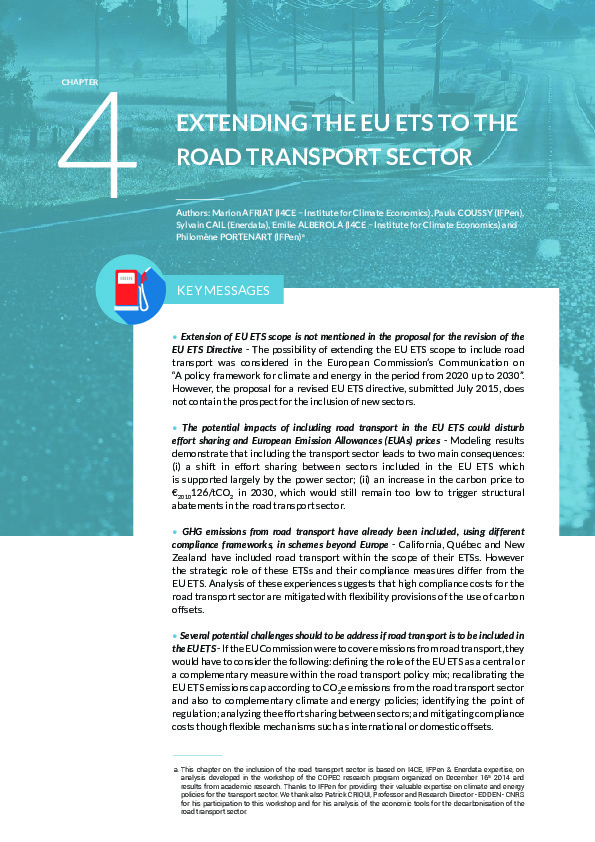COPEC Chapter 4: EXTENDING THE EU ETS TO THE ROAD TRANSPORT SECTOR
This Publication is an extract from the Coordination of EU Policies on Energy and CO2 (COPEC) report, produced jointly by I4CE – Institute for Climate Economics and Enerdata, and in collaboration with IFPen. The report provides new, factual, independent and quantified analysis on EU ETS operationality by 2030, to examine the necessary conditions to improve its environmental and economic effectiveness.
COPEC Chapter 4 on extending the EU ETS to the road transport sector;– Introduces the current European debate on extending the EU ETS scope
to include road transport and specific features of EU emissions from transport
– Demonstrates the potential consequences of a scenario in which
road transport emissions are included in the EU ETS and the impact of this inclusion on balancing supply and demand.
– Explores the features of other emissions trading schemes that have included emissions from the road transport sector in their programs
– Examines the challenges that the EU Commission must investigate
before extending EU ETS scope to include GHG emissions from the road transport sector
